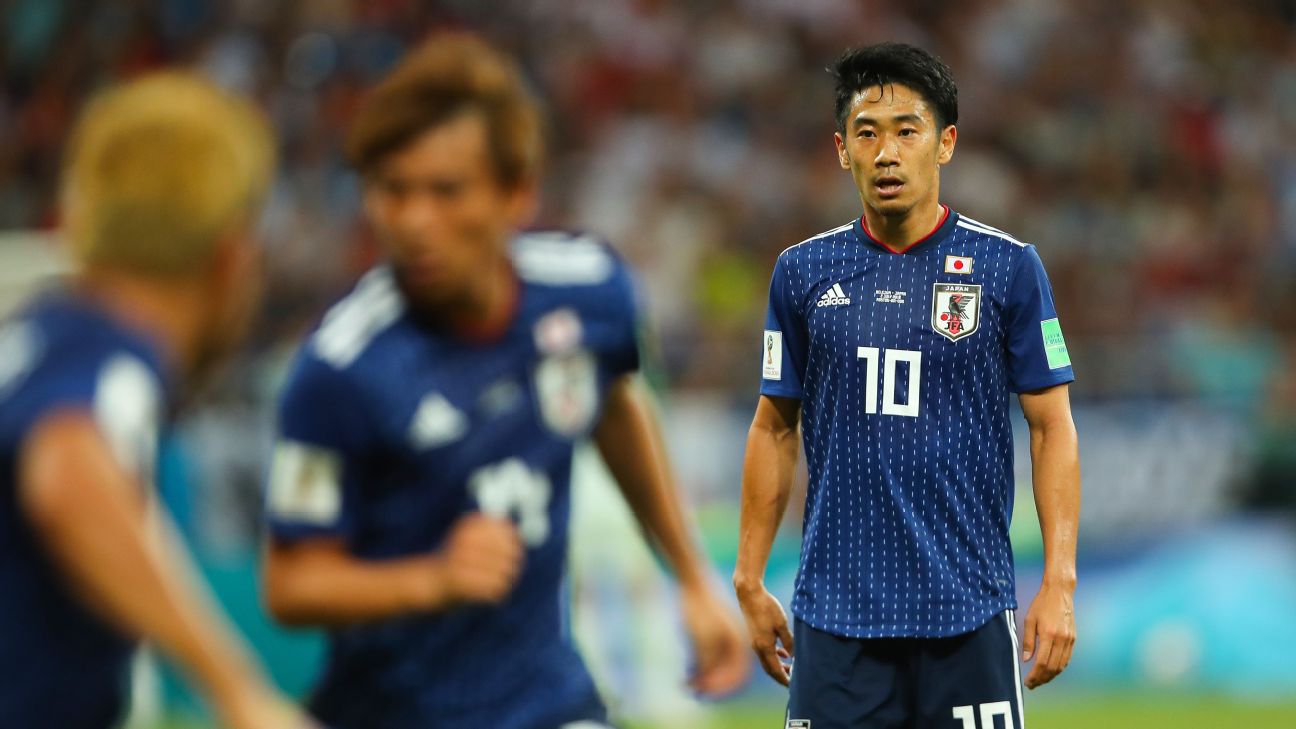

The last time Borussia Dortmund won the Bundesliga back in 2012, Shinji Kagawa was a crucial part of the team.
Fast-forward to now, as the German side sit pretty on top of the table heading into February, the 29-year-old is a bit player at best. Still, that is more than he manages with his homeland.
The last time Japan became Asian champions in 2011, the playmaker was one of the stars. As he watches his compatriots on television on Friday in the final of the 2019 Asian Cup against Qatar, Kagawa could be excused at least some mixed feelings.
A few months ahead of his 30th birthday, the former Manchester United man is faced with the prospect of his international career being over.
The Samurai Blue are doing just fine without him. After reaching the last 16 in Russia, there was then a definite sense of a changing of the guard. Keisuke Honda and Makoto Hasebe, more than two years and five years older respectively, retired. After elimination against Belgium, Kagawa, who scored against Colombia in Russia, has not featured under new boss Hajime Moriyasu.
There is a new generation of players now. Attacking stars such as Ritsu Doan, Genki Haraguchi and Takumi Minamino have shown the embarrassment of riches that Japan have in this area — especially in Monday’s semifinal against Iran. Going into the game Team Melli had not conceded a goal in the tournament, yet Japan crushed them 3-0. It was clinical and intelligent from a team that had been functional in the previous five games.
Until the last four, with five victories by a single goal, Japan showed little of the expansive passing game they have become known for. Instead, they kept it tight, often let the opposition have the ball and struck when the opportunity presented itself.
Against Iran, it was totally different and Moriyasu let the shackles off a little, pressing high and attacking at speed. Carlos Queiroz’s side were expected to win but fell apart when confronted with the speed and verve of the four-time champions. In a tournament that has been somewhat lacking in terms of quality, this was a professional and impressive performance with striker Yuya Osako grabbing goals number three and four for the tournament.
If Kagawa’s attacking gifts are no longer needed, then neither is his experience. Maya Yoshida has stepped in as skipper and has grown into the role. The Southampton defender has led by example on and off the pitch and there is also former Inter Milan left-back Yuto Nagatomo, the veteran of the team at 32, to lend the benefit of a lengthy career if needed.
No wonder that there is no clamour for Japan’s big names to return.
It is a little different for Japan’s Asian Cup final opponents Qatar, in that the team doesn’t have that many old heroes. It is a young squad, with 11 players 22 or under, that is making its own history.
Qatar are looking for a first title in a first final — compared to a fifth for Japan — but perhaps will not be under that much pressure. It was obvious that they were improving under coach Felix Sanchez Bas in the past few months, with friendly victories over Switzerland and draws with Iceland, but the Maroons were not expected to get this far.
They were certainly not expected to get to the showpiece event by scoring 16 goals and conceding none. They were not expected to get past South Korea at the quarterfinal stage and they were not expected to field a striker who has scored eight goals, with Almoez Ali already equalling Ali Daei’s eight-goal tally for most goals in a single Asian Cup tournament. At the back there are other new stars in the shape of Bassam Al-Rawi and Tarek Salman.
Qatar have been the best team of the tournament and got past Lebanon, North Korea, Saudi Arabia, Iraq, South Korea and hosts the United Arab Emirates — that’s quite a list in Asian football terms — with few problems.
In the semifinal at the home of the the hosts, Qatar faced a hostile crowd but a young team produced an impressively mature and confident performance. As soon as an opening presented itself, the team were ahead and never looked like relinquishing the lead in an impressive 4-0 win. Something similar is needed against Japan who will be a lot more difficult to break down than the U.A.E.
Qatar have come far and the final will show how far they can go. Whatever happens it will be a learning process. How will they react to conceding a goal, as is probable? How will they penetrate the Japanese defence that has tightened as the competition has gone on? And how will they react if they take the lead and the first continental prize in history comes into view?
The future is looking bright for Qatar as well as Japan. And surely even Kagawa, and the others such as Honda, Hasebe and Okazaki, can see that they are not missed. There are new stars on the way.
